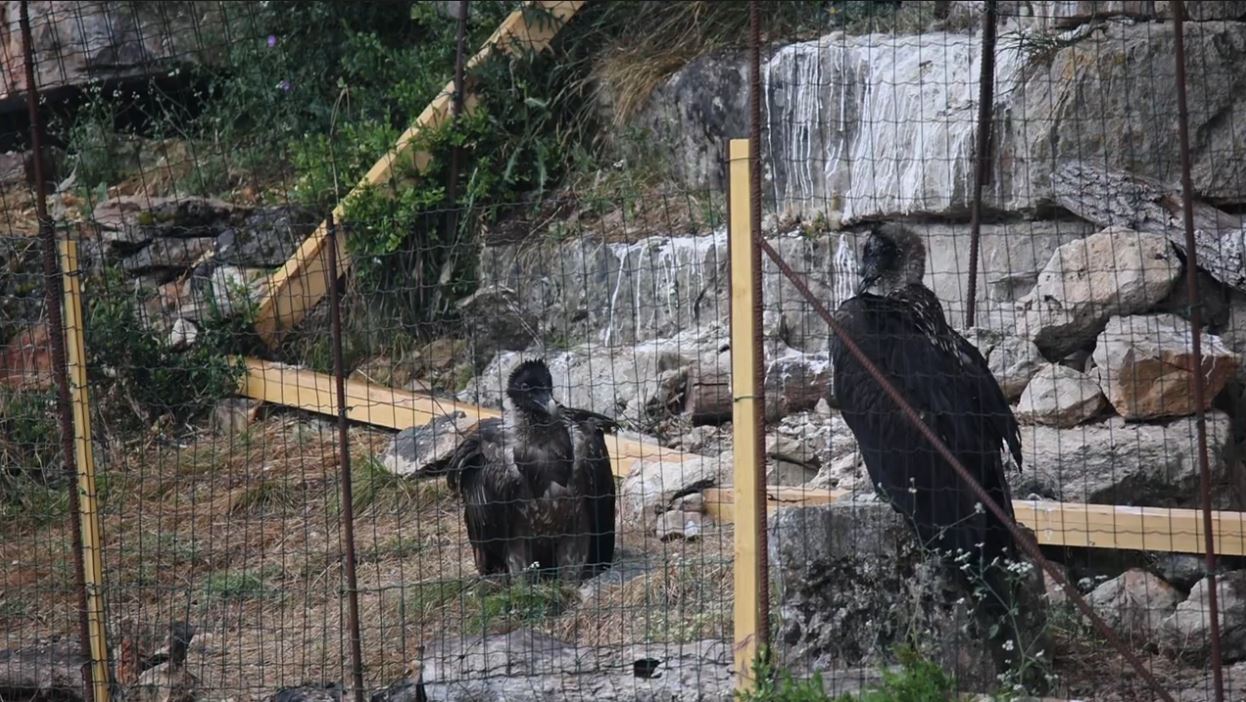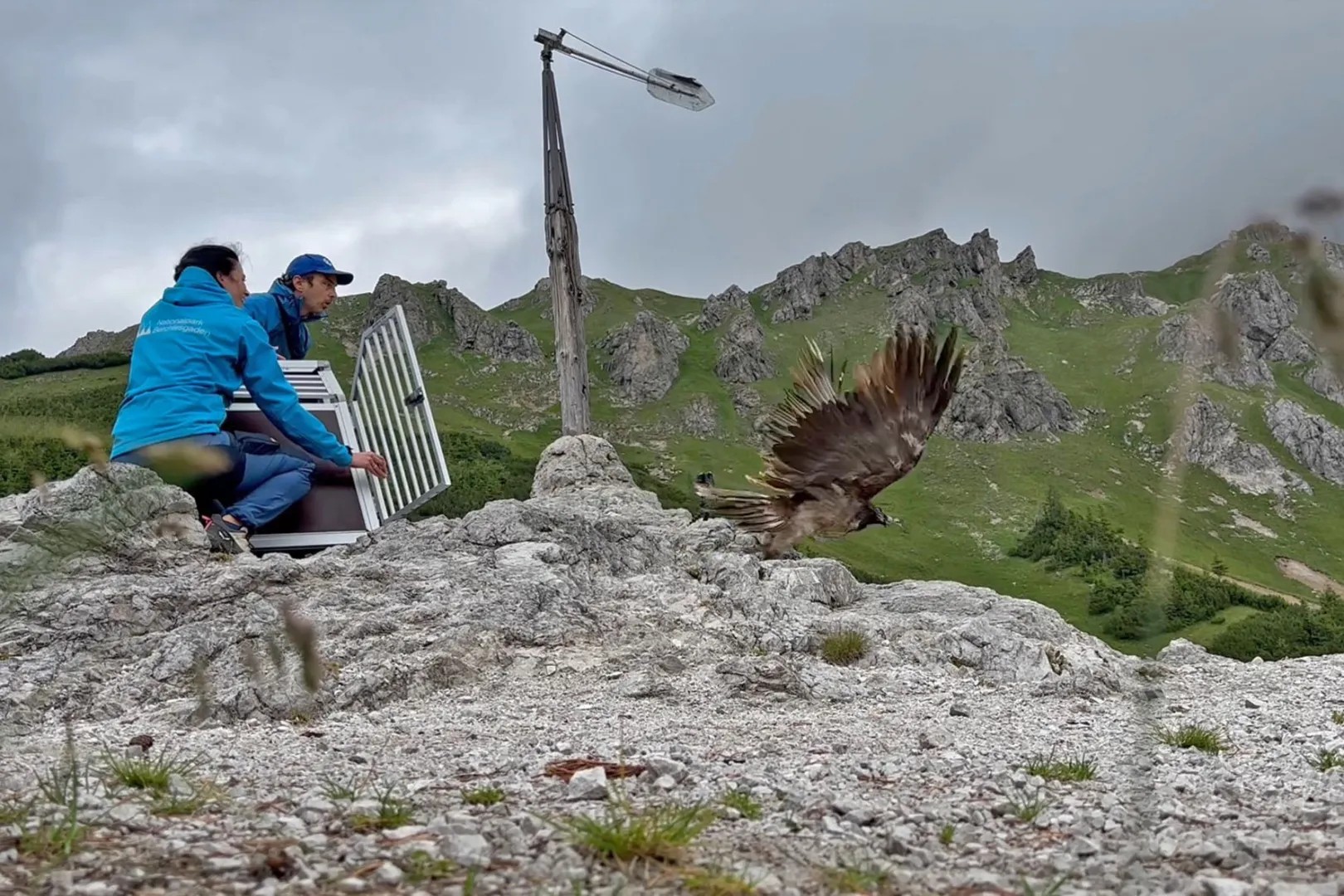Last week saw the first releases this year of captive-bred bearded vultures – this Spring we are hoping to release at least 17 birds in the different reintroduction and restocking projects we are involved with.
At the base of this momentous conservation efforts is the bearded vulture captive breeding network, managed by the VCF under the framework of an EAZA´s EEP (European Endangered Species Programme). This network is composed by a vast number of different type of institutions: private and municipal Zoos, private collections, NGO and Governmental wildlife rehabilitation centers, and specialized captive breeding centers.
In each one of these there is a dedicated team of bird curators working incessantly to maximize captive breeding, often very well backed up by dedicated volunteers who spend long days and nights working with the birds. It is often there, in those unsung and unseen back rooms, that the successful conservation story of the bearded vulture in Europe starts.
The VCF is grateful to all those individuals who dedicate so much of their lives to this species. We have recently received some report from one of those volunteers, that has spent some time in the Richard Faust bearded vulture captive breeding center in Haringsee (Austria). Here are his words:
“Allow me to introduce myself, my name is Rik Dams and I am very fortunate to be able to share my passion about birds with many students with an interest in animals, as I teach the subject birds to animal husbandry students at the KOGEKA institute in Geel, Belgium. Being an aviculturist with a passion for conservation, I have always looked for possibilities to gain experience in the field of conservation breeding.
Next to having a private bird collection for as long as I can remember, I have been a bird keeper at the Zoo of Antwerp and gained experience with many unique species as assistant curator of birds in Al Wabra Wildlife Preservation, Qatar. But it is the function as teacher that got me to the Eulen- und Greifvogelstation (EGS) in Haringsee, Austria.
Thanks to the Erasmus+ scholarship it is possible for teachers to gain experience in their discipline. I did not have to think long about whether I would do such an internship, but it did took me quite some time to figure out where. Eventually the pieces of the puzzle came together and in retrospect, I could not have been anywhere better!
EGS has a dual purpose, serving as a sanctuary for injured birds as well as being a breeding facility for Bearded vultures (Gypaetus barbatus), Ural owls (Strix uralensis) and Egyptian vultures (Neophron percnopterus). As a consequence of these two activities, there is always plenty of activity and lots of learning opportunities. Many injured birds are brought to the center, but the release rate is fortunately high. Unique to my knowledge is that birds which are incapable to fly, and thus unable to be released back into the wild, are used as foster parents for abandoned (wild) chicks. This is a clever idea to make the best of the unfortunate position of these birds.
The number of breeding birds is also highly impressive; I had never seen more than thirty Bearded vultures in one collection before. Equally impressive are the breeding results, especially considering the fact that several birds of the breeding stock are handicapped. I was very fortunate to witness the hatch of the last Bearded vulture chick of the season. Although the chick initially knew a slow start, it was successfully introduced to an experienced foster pair.
It was a privilege to work together with the very experienced and knowledgeable staff of EGS. You can see the benefits of years of experience, both for the breeding and rehabilitation. It was for this knowledge that I came to EGS and I learned more than I could have expected. But equally important is that I gained friends for life.
I had a wonderful time and am very grateful to both the Erasmus+ program for the support and EGS for the opportunity. I enjoyed my time and am sure my students will benefit from this experience. I definitely also learned lots about conservation breeding and about how to run a breeding center, which brings me one step closer to my dream of one day breeding birds for the reintroduction back into the wild”.
Thank you Rik, thank you all. All together for bearded vultures!



